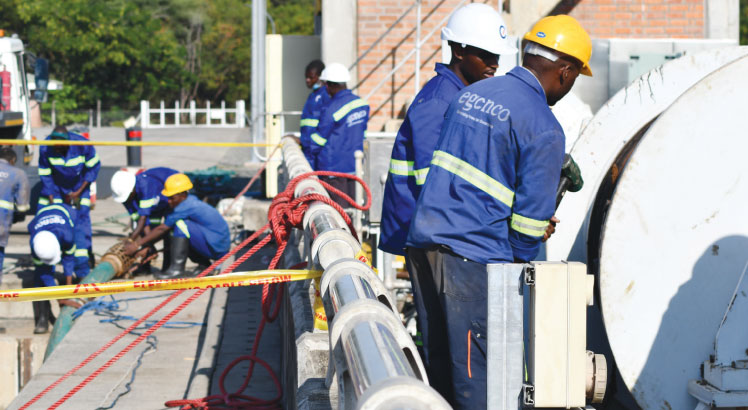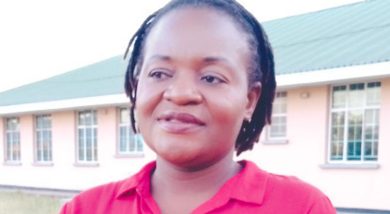Recovery plan misses targets
Implementation of Malawi’s ambitious three-year K580 billion Socio-Economic Recovery Plan (Serp), which sought to build post-Covid-19 pandemic recovery, ends this month, but with little to show despite optimism from the National Planning Commission (NPC).
During the launch of Serp in 2021, President Lazarus Chakwera said the initiative sought to stimulate strategic sectors of the economy through various interventions.

Focus areas included building a resilient and sustainable health system, education system, social protection system as well as economy and labour market. The plan also sought to build an enabling macroeconomic policy environment.
However, The Nation assessment shows that some of the projects have not taken off the ground. These include construction of 900 health posts and 1 800 community health workers’ housing units under the National Acceleration Community Health Roadmap as well as fast-tracking the Salima-Lilongwe Water Supply Project and Mpatamanga Hydro Power Station construction project.
Under the economic focus area, the NPC-led strategy sought to maintain the country’s current account balance of around negative three percent of gross domestic product (GDP) and manage the monetary policy to stabilise interest, foreign exchange and inflation rates.
But in a written response to The Nation questionnaire, NPC spokesperson Thom Khanje said the Serp has registered some achievements, include clinching of the International Monetary Fund (ECF) Extended Credit Facility “that will unlock substantial international resources into the country”.
He said the rehabilitation of the Kapichira Hydro Power Project in Chikwawa District was another gain as it has restored normal electricity production “and almost eliminated loadshedding”.
Said Khanje: “In addition to that is the front-loading of ongoing socio-economic investments in select productive sectors such as roads and other infrastructure under the Malawi II Compact Development for an amount of $350 million, construction of 55 health posts, recruitment of 3 500 auxiliary primary school teachers and 2 272 secondary school teachers.”
He also said government has distributed 450 computers to promote digital learning.
On challenges, Khanje said implementation of Serp faced external shocks that followed the Covid-19 pandemic such as the Russia-Ukraine war, cyclones Idai and Freddy, the record cholera outbreak, huge public debt, forex and fuel shortages and high food prices.
In their respective reactions, sector-specific commentators have faulted the implementation of the Serp.
Malawi University of Business and Applied Sciences economics lecturer Wisdom Mgomezulu, in a written response, observed that the current account balance has been around minus 12 and minus 14 percent of GDP in the past three years.
He said: “This shows that we failed to attain the desired minus three percent. Again, the monetary policy has constantly been an issue of great concern in the country.
“We have seen the Reserve Bank of Malawi raising the interest rates now and again trying to control inflation, but to no avail.”
Mgomezulu gave the implementation of Serp a 40 out of 100 score.
In education, the focus was to enhance academic systems through innovation and digital transformation technology to facilitate e-learning.
Commenting on the education focus, quality education activist Steve Sharra observed that more than 60 percent of the secondary school curriculum has now been digitalised and is available online.
He said: “It can be accessed at zero cost for data. It still needs pedagogical support for students, but it is a major achievement. Mobile phone companies have made available student Internet bundles.”
Sharra, who gave education recovery progress 55 out of 100, noted further that some components in the plan have not been implemented.
He said: “Some teachers were trained in e-learning, but many were not. For many schools, equipment for e-learning was never procured.”
Under the health focus area, plans were to construct water sanitation and hygiene (Wash) facilities, health posts and decent community health workers houses, across the country to improve access to primary health care.
The other was building four specialised Infectious Disease Treatment Centres in strategic locations of the country’s four regions to manage outbreaks.
But in his assessment, Malawi Health Equity Network executive director George Jobe said: “For the four specialised infectious treatment centres we know of Karonga, Mchinji, Dedza, Mwanza and we are yet to verify if the Eastern Region also has one.”
The activist, however, said it was difficult to account for the other interventions since there was no specification on quantities.
The issue of health posts also stirred debate in Parliament as legislators expressed frustrations over i,plementation delays.
In her response in Parliament, Minister of Health Khumbize Kandodo Chiponda said they are discussing with Ministry of Finance and Economic Affairs because government has to provide part of the funding since the project is being co-financed.
The Global Fund provided K4 billion towards the 55 health posts project while government was to provide K9 billion. In the 2023/24 budget, government allocated K1 billion towards the project
Serp is part of the Malawi 2063 First 10-Year Implementation Plan which NPC is implementing through various interventions aimed at attaining lower middle-income status by 2030. MW2063 is the country’s long-term development strategy.






One Comment